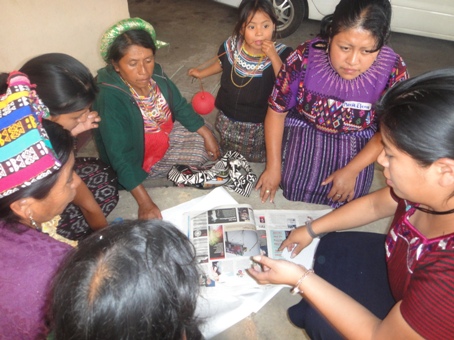Support indigenous women in Guatemala attend “Political Training School” to become change makers in their communities.
Why we care: After 36 years of armed conflict and military dictatorship, indigenous women continue to suffer from violence, poverty, and trauma.
How we’re solving this: Creating conscientious women leaders equipped with decision-making, leadership, and political rights expertise.
In Guatemala, women are the breadwinners in one-third of households; they work tirelessly, earning money to support their families. Many still live in dire poverty without healthcare or education. Indigenous women are even further marginalized in society, and approximately 75 to 90 percent are illiterate. Education and leadership skills are critical to providing indigenous women the opportunities to lead empowered lives and participate fully in their societies.
This year, Coordinadora Nacional de Viudas de Guatemala (National Coordination of Widows of Guatemala) (CONAVIGUA), an organization led by indigenous women that seeks to eradicate discrimination, will bring 30 Mayan women together for training in Quiché, Guatemala to develop their leadership skills and civil rights awareness. They will be able to communicate with and influence politicians regarding women’s needs in work, education, and health. CONAVIGUA’s “Political Training School,” will offer six political awareness workshops teaching women their legal rights, debate skills, and communication strategies, and how to become change makers in their communities. Women will also have opportunities to practice debating in women’s circles, discussing issues such as education, violence, and politics. Women will also participate in CONAVIGUA’s annual campaign to spread awareness on ending violence against women. After one year of training, Mayan women will know their political and civil rights in and out and as a result, will participate in civil society and know how to exercise their rights to create social and political change.
Support this project and help ensure that indigenous girls and women know their rights, have the confidence and leadership skills to exercise them, and initiate change when their rights are not protected.


